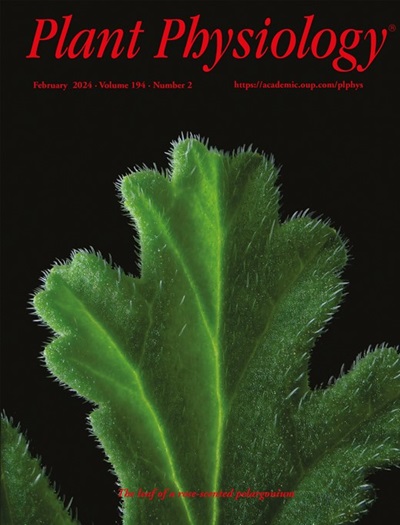A Deep Dive into Plant Metabolomics: Milestones, Technologies, and Translational Impact.
IF 6.9
1区 生物学
Q1 PLANT SCIENCES
引用次数: 0
Abstract
Metabolomics has emerged as an essential pillar of plant functional genomics, filling the gap between genotype and phenotype with direct biochemical readout of plant physiology. This update review highlights the contribution of metabolomics as a field towards our current knowledge of plant biology, starting from targeted analysis to the present high-throughput untargeted era of metabolomics. We elaborate on how metabolomics revolutionized the study of plant stress response, unveiling roles of specialized metabolites in defense, adaptation, and ecological interactions, and in extension, its contribution towards functional genomics leading to the improvement of plants with desired traits. We identified and summarized over 500 open-source computational tools for analyzing metabolomics datasets, encompassing processes from mass feature extraction to metabolite annotation. We discuss its use in the elucidation of biosynthetic pathways, especially specialized metabolites in medicinal plants, and the discovery of candidates through comparative transcriptome-metabolome profiling. This review further covers the emergence of metabolome-wide association study (mGWAS) and metabolite QTL analysis (mQTL), which exploit genetic diversity to localize biosynthetic genes and regulatory sites. Emerging technology such as imaging MS, single cell metabolomics, AI-powered metabolite identification and annotation, and global data repositories promise to scale metabolomics to precision crop improvement and synthetic biology. In covering all areas with completeness and vision, we intend that this review acts as the go-to guide for plant metabolism decoders, teachers, and practitioners working to unlock plant metabolism for sustainable agriculture, medicine, and biotechnology.深入研究植物代谢组学:里程碑、技术和转化影响。
代谢组学已经成为植物功能基因组学的重要支柱,通过对植物生理的直接生化解读,填补了基因型和表型之间的空白。这篇最新综述强调了代谢组学作为一个领域对我们当前植物生物学知识的贡献,从靶向分析到目前高通量非靶向代谢组学时代。我们详细阐述了代谢组学如何彻底改变了植物胁迫反应的研究,揭示了特殊代谢物在防御、适应和生态相互作用中的作用,以及它对功能基因组学的贡献,从而改善了具有所需性状的植物。我们确定并总结了500多个用于分析代谢组学数据集的开源计算工具,包括从大量特征提取到代谢物注释的过程。我们讨论了它在阐明生物合成途径中的应用,特别是药用植物中的特殊代谢物,以及通过比较转录组-代谢组分析发现候选物。本文进一步介绍了代谢组关联研究(mGWAS)和代谢物QTL分析(mQTL)的出现,它们利用遗传多样性来定位生物合成基因和调控位点。成像质谱、单细胞代谢组学、人工智能代谢物识别和注释以及全球数据存储库等新兴技术有望将代谢组学扩展到精确作物改良和合成生物学。在完整和有远见地涵盖所有领域的情况下,我们希望这篇综述可以作为植物代谢解码器、教师和从业者的首选指南,为可持续农业、医学和生物技术解锁植物代谢。
本文章由计算机程序翻译,如有差异,请以英文原文为准。
求助全文
约1分钟内获得全文
求助全文
来源期刊

Plant Physiology
生物-植物科学
CiteScore
12.20
自引率
5.40%
发文量
535
审稿时长
2.3 months
期刊介绍:
Plant Physiology® is a distinguished and highly respected journal with a rich history dating back to its establishment in 1926. It stands as a leading international publication in the field of plant biology, covering a comprehensive range of topics from the molecular and structural aspects of plant life to systems biology and ecophysiology. Recognized as the most highly cited journal in plant sciences, Plant Physiology® is a testament to its commitment to excellence and the dissemination of groundbreaking research.
As the official publication of the American Society of Plant Biologists, Plant Physiology® upholds rigorous peer-review standards, ensuring that the scientific community receives the highest quality research. The journal releases 12 issues annually, providing a steady stream of new findings and insights to its readership.
 求助内容:
求助内容: 应助结果提醒方式:
应助结果提醒方式:


